#cancer screening
Text
motherfuckers just told my mom her prep medicine would be 100 bucks. On medicare. She had to cancel her colonoscopy.
The taxes she paid into the system with her entire life are getting put into defense executives' pockets and used for corporate bailouts while my own mother gets denied a fucking cancer screening.
I am livid.
9 notes
·
View notes
Text

Targeted Therapy:
Precision or targeted therapies encompass medications engineered to disrupt specific molecules implicated in the progression of cancer. In contrast to conventional chemotherapy's broad impact on fast-dividing cells, precision therapies selectively target cancer cells while preserving healthy tissue integrity. These drugs aim at various molecular pathways involved in cancer development, including signaling cascades, angiogenesis, and DNA repair mechanisms.
An illustrative example of precision therapy is the application of tyrosine kinase inhibitors (TKIs) in treating specific cancer types like non-small cell lung cancer (NSCLC) and chronic myeloid leukemia (CML). TKIs hinder the activity of particular tyrosine kinases, crucial enzymes in cancer-promoting cell signaling pathways. By obstructing these kinases, TKIs effectively inhibit tumor growth and extend patient survival.
Likewise, monoclonal antibodies represent another form of precision therapy, binding to specific proteins on cancer cell surfaces, initiating immune-mediated tumor destruction. These antibodies can also be combined with cytotoxic agents or radioactive isotopes to heighten their anti-cancer properties.
Personalized Chemotherapy:
While precision therapies are central to personalized medicine, tailored chemotherapy remains vital in cancer treatment. Tailored chemotherapy involves customizing traditional cytotoxic drugs to suit the unique characteristics of each patient's tumor. This may involve adjusting drug doses, combining different agents, or selecting chemotherapy regimens based on tumor biology and patient-specific factors.
One approach to tailored chemotherapy utilizes predictive biomarkers to identify patients likely to respond positively to specific chemotherapy drugs. For example, certain mutations in the BRCA genes are associated with increased sensitivity to platinum-based chemotherapy in breast and ovarian cancers. By identifying these biomarkers, oncologists can identify patients who will benefit most from a particular chemotherapy regimen while minimizing potential toxicity for others.
Furthermore, progress in pharmacogenomics, which explores how genetic variations affect drug response, has provided insights into individual differences in drug metabolism and toxicity. By analyzing patients' genetic profiles, oncologists can predict their likelihood of experiencing adverse effects or poor response to chemotherapy drugs, enabling personalized dose adjustments and treatment optimization.
Early cancer detection and management is important for an improved success rate in cancer treatment. You can undergo regular health checkups to get diagnosed for cancer at an early-stage. There are many good hospitals in Mumbai that offer health checkup packages for cancer screening, such as a full body health checkup at Saifee Hospital Mumbai, which is one of the best hospitals in the country.
#chemotherapy#personalized chemotherapy#targeted therapy#full body health checkup#regular health checkups#cancer screening#cancer detection
4 notes
·
View notes
Text
A couple of months back (probably more like a year ngl) I found a neck lump and kinda just assumed it was normal. A few months ago it started growing. And then I found one on the other side. I got them checked had some bloods, and apart from a high inflammatory marker no further action. 3 weeks ago I found a lump in my armpit, then 2 days ago I found another one in my neck. I currently have 2 pea size lumps in my neck, 1 small lump in my neck and a pea size lump under my arm.
I finally went back to the doctors today. (I’d left the armpit one as I get boils and thought it was that but it never came to a head). I’ve been referred on the 2 week cancer pathway to get my lumps checked by a specialist. The doctor said it could be reactive lymph nodes but as I kept getting more she wanted me to get checked out.
I’m shit scared - but when dr google told me this months ago I had more of a panic then, I think I’ve now just accepted it could be something bad or it might not be. I was prepared for this outcome. So now we await an appointment over the next 14 days for some more investigations then 2 more weeks for results from then.
Moral of the story get your lumps checked peeps. Don’t delay like I did! The doctor was lovely and checked my armpits and neck thoroughly to find all the lumps she could. Now we wait🥺
#get lumps checked#i might have cancer#cancer screening#cancer scare#lumps#lumps in neck#health#go to the doctors#don’t delay#im serious
7 notes
·
View notes
Text
Cervical cancer
Cervical cancer is a type of cancer that develops in the cervix, which is the lower part of the uterus that connects to the vagina. It is the fourth most common cancer in women worldwide and can affect women of all ages. However, it is most often diagnosed in women between 35 and years of age.
Causes of cervical cancer:
The main cause of cervical cancer is infection with human papillomavirus (HPV), a sexually transmitted virus. There are more than 100 different types of HPV, and some types can cause cervical cancer. Other factors that can increase the risk of cervical cancer include smoking, a weakened immune system, a family history of cervical cancer, and multiple sexual partners.
Symptoms of cervical cancer:
Cervical cancer does not necessarily cause symptoms in its early stages. As the cancer progresses, symptoms may include abnormal vaginal bleeding, pelvic pain or discomfort, pain during intercourse, and unusual vaginal discharge. It is important to note that these symptoms can be caused by other diseases, so it is important to consult a doctor to get a proper diagnosis.
Prevention and early detection of cervical cancer:
The most effective way to prevent cervical cancer is the HPV vaccine. The HPV vaccine protects against the types of HPV that cause most cases of cervical cancer, as well as against other types of HPV that can cause other types of cancer. The vaccine is recommended for males and females between 9 and 26 years of age.
Regular cervical cancer screening is also important for early detection. A Pap test is a test that checks for abnormal cells on the cervix. It is recommended that women start regular Pap tests from the age of 21. In addition, the new HPV test can also detect the presence of the virus that causes cervical cancer. Women should discuss with their healthcare provider which exams are right for them.
Treatment of cervical cancer:
Treatment of cervical cancer depends on the stage of the cancer and other factors such as the woman's age and general health. Treatment options may include surgery, radiation therapy, chemotherapy, or a combination of these treatments.
In summary, cervical cancer is a common female cancer that can be prevented by vaccination and detected early by regular screening. Women should consult with their health care provider to determine appropriate screening and vaccination. If cervical cancer is diagnosed, early treatment can lead to a better outcome.
For more information Visit: www.oncorelief.in
#Cervical cancer#Women's health#Cancer prevention#Cancer screening#HPV vaccine#Pap test#HPV test#Cancer treatment#Early detection#Health education#Gynecologic oncology#Oncology nursing#Reproductive health#Sexually transmitted infections#Public health#Medical research#Health advocacy#Patient support#Survivorship
2 notes
·
View notes
Text
A new cancer blood test is being described by British physicians as a “game changer” and “a new era” as a trial has turned up dozens of early-stage, undiagnosed cases.
It’s called the Galleri test, and it looks for multiple different kinds of cancer DNA in the blood, which can not only identify cases in much earlier stages, but even where to look in the body to find it.
In the recently-completed Pathfinder Trial, 6,621 adults over 50 took the Galleri blood test, which came back positive in 92 patients, 35 of which already had solid tumors, and none of whom had any early symptoms.
Read more...
3 notes
·
View notes
Photo
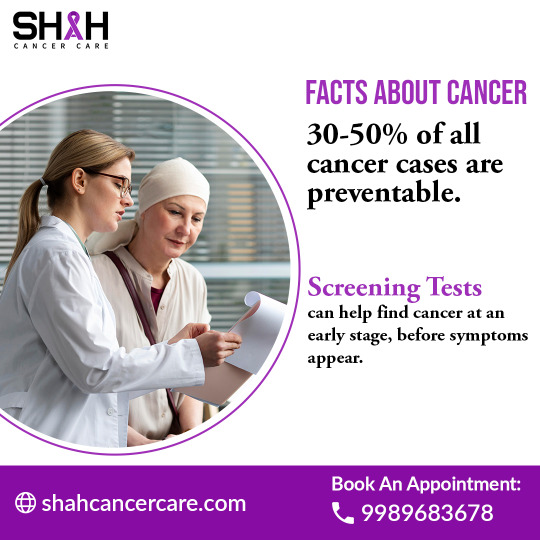
Are you aware that Cancer screening tests aim to find cancer before it causes symptoms and when it may be easier to treat successfully? To know more about the benefits of Screening tests call and Consult with the Best Radiation Oncology specialist on 99896 83678.
#cancer#lung cancer#cancer screening#cancer treatment#oncology#radiation oncology#cancerawareness#cancersurvivor#cancer prevention#radiotherapy#oncologist
5 notes
·
View notes
Text
Vaccines for Cervical Cancer in Girls: A Comprehensive Overview
In contemporary healthcare, the integration of vaccines in cervical cancer prevention strategies marks a pivotal advancement. Cervical cancer, originating in the cervix’s surface cells, presents a significant health concern for women globally. While cervical cancer typically affects women aged 35 to 44, it’s notable that over 15% of new cases occur in women over 65, particularly those not undergoing regular screenings.
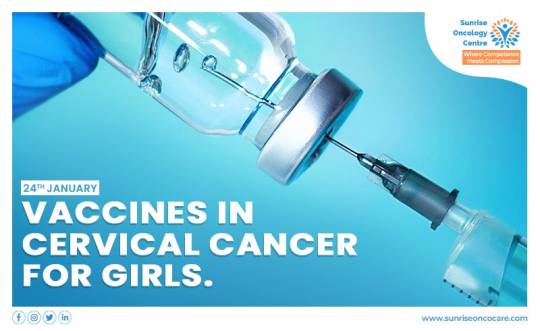
Early detection of cervical cancer is challenging due to the absence of noticeable symptoms until the disease has progressed. Symptoms, when present, can mimic common ailments such as menstrual irregularities or urinary tract infections. However, unusual bleeding, abnormal vaginal discharge, pelvic pain, and changes in urinary habits warrant a medical examination.
Human papillomavirus (HPV) infection, primarily transmitted sexually, is the leading cause of cervical cancer. HPV strains, notably HPV-16 and HPV-18, are responsible for the majority of cervical cancer cases. Regular screening with Pap smears or high-risk HPV tests enables the detection of precancerous cells, allowing for timely intervention to prevent cancer development.
In addition to screening, various preventive measures can mitigate the risk of HPV infection and cervical cancer. Limiting sexual partners and consistent condom use are recommended strategies. However, vaccination against HPV remains the cornerstone of cervical cancer prevention. HPV vaccination is most effective before sexual debut, and it is recommended for girls aged 11 to 12, with catch-up vaccination for females aged 13 to 26.
WHO recommends a flexible vaccination schedule, including one or two doses for girls aged 9–14 and a two-dose schedule with a 6-month interval for women older than 21. The HPV vaccine targets HPV types associated with cervical cancer, as well as other malignancies and genital warts. While highly effective in preventing HPV-related diseases, the vaccine is most efficacious in individuals not yet exposed to HPV.
In conclusion, cervical cancer prevention through vaccination is a critical component of women’s healthcare. By targeting HPV infections, vaccines offer substantial protection against cervical cancer and related diseases. Wide-scale immunization efforts, coupled with regular screenings, have the potential to significantly reduce the burden of cervical cancer worldwide. It’s imperative to raise awareness about vaccination as a preventive measure and encourage vaccination among eligible individuals to safeguard against cervical cancer and its associated health risks. Additionally, seeking guidance from healthcare professionals, including best doctors for ovarian cancer treatment, can provide comprehensive support and ensure optimal health outcomes for women.
To read the full article click here
#andheri#borivali#cancer hospital#cancer screening#cancer specialist#chembur#doctor opinion#maharashtra#mumbai#sunrise oncology centers#cervical cancer#cervicalhealth#vaccine#cervical screening
0 notes
Text
Health Task Force Warns About Dangerous Guidance for Cancer Screenings
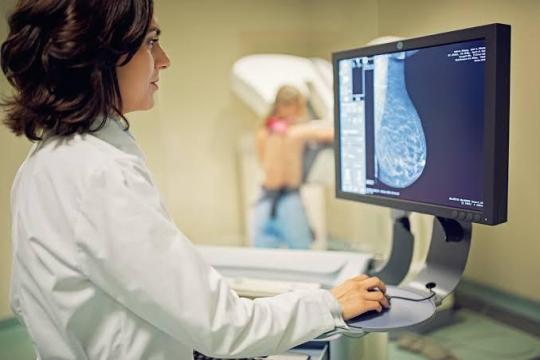
The researchers and experts are warning all about the Canadian Task Force on Preventive Health Care, labeling the group’s cancer screening guidelines as “dangerous” and “deplorable.”
At a media conference on Monday, a group of medical professionals have emphasised on the pressing necessity for the Canadian Task Force on Preventive Healthcare because of its outdated screening guidelines. They conducted that many Canadians are experiencing fatalities and hardships due to this.
Read More:(https://theleadersglobe.com/life-interest/health/health-task-force-warns-about-dangerous-guidance-for-cancer-screenings/)
#cancer screening#healthcare#TaskForce#global leader magazine#the leaders globe magazine#leadership magazine#world's leader magazine#article#best publication in the world#news#business#magazine
0 notes
Text
Unmasking the Risk: Early Signs and Risk Factors of Cancer
https://self-care-tips.com/post-details/unmasking-the-risk-early-signs-and-risk-factors-of-cancer

#Self care tips#cancer#risk factors#early signs#cancer prevention#cancer awareness#detecting cancer early#reducing cancer risk#cancer symptoms#cancer screening
0 notes
Text
Empower Your Health with Comprehensive Women's Care in the Bronx
At Square Medical Care, we provide top-notch health care services tailored specifically for women's health needs in Bronx. From routine check-ups to specialized screenings, we're here to support you every step of the way on your wellness journey.
Primary Care for Women
Our expert team offers comprehensive primary care services From routine check-ups to managing chronic conditions, our primary care doctors in Bronx cover a wide range of health needs. We focus on preventive care, early detection, and proactive management to help you achieve and maintain optimal health.
Cervical Cancer Screening:
Cervical cancer is highly preventable with regular screenings. Trust our caring female professionals to perform thorough cervical cancer screenings. It includes Pap smears to ensure early detection and effective management.
Breast Cancer Screening
Early detection saves lives! Our clinic provides breast cancer screenings to detect any abnormalities at their earliest stages, giving you peace of mind and proactive care.
Our primary care clinic is conveniently located in the prime location of the Bronx. It is accessing quality women's health care has never been easier. Our friendly staff and comfortable environment ensure your visit is stress-free and welcoming. We have online and walk-in appointment.
Don't wait to prioritize your well-being. Schedule your appointment with us and take the first step towards a healthier, happier you!
0 notes
Text
Cancer Screening For Women | One Call Doctor, Dubai
𝐋𝐚𝐝𝐢𝐞𝐬, 𝐭𝐚𝐤𝐞 𝐜𝐡𝐚𝐫𝐠𝐞 𝐚𝐧𝐝 𝐜𝐫𝐮𝐬𝐡 𝐭𝐡𝐞 𝐜𝐫𝐚𝐛 𝐛𝐞𝐟𝐨𝐫𝐞 𝐢𝐭 𝐞𝐯𝐞𝐧 𝐛𝐞𝐠𝐢𝐧𝐬 𝐭𝐨 𝐜𝐫𝐚𝐰𝐥!
If you have a blood relative with cancer, don’t wait—screen yourself for cancer with a straightforward blood test at home.
𝐖𝐡𝐲 𝐢𝐬 𝐭𝐡𝐢𝐬 𝐜𝐫𝐮𝐜𝐢𝐚𝐥?
𝗘𝗮𝗿𝗹𝘆 𝗱𝗲𝘁𝗲𝗰𝘁𝗶𝗼𝗻 is our strongest weapon against cancer.
𝗧𝗶𝗺𝗲𝗹𝘆 𝗰𝗮𝗿𝗲 can be the difference between life and loss!

0 notes
Text
Breast Cancer Spit Test
RESEARCHERS RECENTLY DEVELOPED A HANDHELD device capable of detecting breast cancer by reading biomarkers in saliva. Today we explore a breast cancer spit test.
I am a doctor who helps patients who have cancer. Many of them have breast cancer.
I am also a person who despises cancer. I am excited to learn of anything that might prevent breast cancer, detect it earlier, or advance…

View On WordPress
0 notes
Text
A Comprehensive Guide To The 4 Types Of Cancer Screening Tests
Cancer screening tests are essential to detect cancer early, even before there are symptoms. Here are 4 types of cancer screening to detect at early stage.
0 notes
Text
Genetic Testing and Cancer Screening: What You Need to Know
Introduction:
In the realm of cancer prevention and early detection, genetic testing has emerged as a powerful tool that offers invaluable insights into an individual’s risk of developing various types of cancer. By analyzing an individual’s genetic makeup, healthcare professionals can identify inherited gene mutations associated with an increased susceptibility to certain cancers. Understanding the role of genetic testing in cancer screening is crucial for making informed decisions about proactive health management. In this blog post, we’ll delve into the fundamentals of genetic testing for cancer screening, exploring its significance, implications, and common questions surrounding this rapidly evolving field.
Understanding Genetic Testing for Cancer Screening:
Genetic testing involves analyzing a person’s DNA to identify specific changes or mutations that may predispose them to developing cancer. These mutations can be inherited from one or both parents. Genetic tests can provide valuable information about an individual’s risk of developing certain types of cancer, allowing for proactive measures such as increased surveillance, preventive strategies, or early intervention.
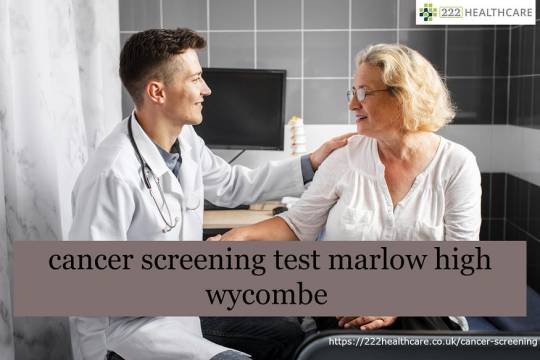
Importance of Genetic Testing:
Early Detection and Prevention: Genetic testing can identify individuals with an elevated risk of developing cancer at an earlier stage, enabling them to take proactive steps to prevent or detect cancer in its early, more treatable stages.
Personalized Risk Assessment: By identifying inherited genetic mutations, healthcare providers can tailor screening and prevention strategies to suit an individual’s specific risk profile, leading to more personalized and effective care.
Family Planning: Genetic testing can provide valuable information for family planning decisions, allowing individuals to make informed choices about reproductive options and family health management.
Precision Medicine: Genetic testing plays a crucial role in the emerging field of precision medicine, guiding treatment decisions by identifying genetic markers that may influence treatment response and prognosis.
Conclusion:
Genetic testing for cancer screening represents a significant advancement in personalized medicine, offering valuable insights into an individual’s cancer risk and guiding proactive health management strategies. By understanding the significance of genetic testing and addressing common questions and concerns, individuals can make informed decisions about their health and well-being. As the field of genetic testing continues to evolve, ongoing research and advancements hold the promise of further enhancing our ability to prevent, detect, and treat cancer effectively.
Incorporating genetic testing into routine cancer screening protocols has the potential to revolutionize how we approach cancer prevention and early detection, ultimately improving outcomes and saving lives. Embracing the power of genetic testing empowers individuals to take control of their health journey and pave the way for a future where cancer is detected early or prevented altogether.
Cervical screening is another crucial aspect of women’s health. Regular screening for cervical cancer can detect abnormal changes in the cervix early, allowing for prompt intervention and treatment. To learn more about cervical screening, visit 222 Healthcare’s Women’s Health — Cervical Screening.
Remember, knowledge is power, and genetic testing offers the knowledge needed to make informed decisions and proactive choices about cancer prevention and early detection.
If you have further questions about genetic testing or cancer screening, don’t hesitate to reach out to 222healthcare in High Wycombe ,Marlow for guidance and support. Your health and well-being are worth prioritizing, and genetic testing can be a valuable tool in safeguarding your future.
Commonly Asked Questions (FAQs) About Genetic Testing for Cancer Screening:
1.What types of cancer can be detected through genetic testing?
Genetic testing can identify mutations associated with various types of cancer, including breast, ovarian, colorectal, prostate, and pancreatic cancer, among others.
2.Who should consider genetic testing for cancer?
Individuals with a family history of cancer, especially those with multiple affected relatives or early-onset cancer cases, may benefit from genetic testing. Additionally, individuals belonging to certain ethnic or racial groups with a higher prevalence of specific genetic mutations may also be candidates for testing.
3.How is genetic testing performed?
Genetic testing can be conducted using a sample of blood, saliva, or tissue. The sample is analyzed in a laboratory to identify specific genetic mutations associated with an increased risk of cancer.
4.What are the potential implications of genetic testing results?
Genetic testing results may reveal an increased risk of developing cancer, which can have emotional, psychological, and practical implications for individuals and their families. It’s essential to discuss the potential consequences of testing with a genetic counselor or healthcare provider before undergoing genetic testing.
0 notes
Text
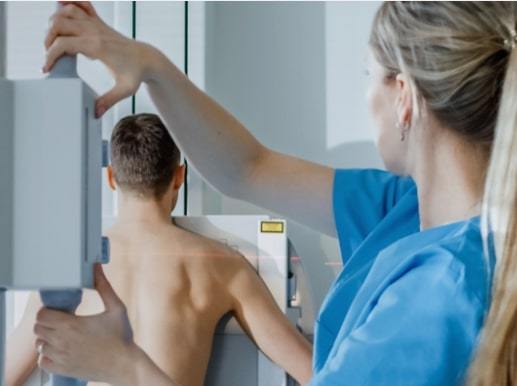
Comprehensive Cancer Screening Services: Early Detection for Better Health
Our cancer screening services offer early detection and peace of mind. Schedule your screening today to prioritize your health and well-being.
0 notes
Text
Make cancer screening a regular part of your life. Get Screened!
Put your love into action. Screening tests are used before a person has any symptoms to help find cancer early, when it may be easier to treat.
youtube
0 notes